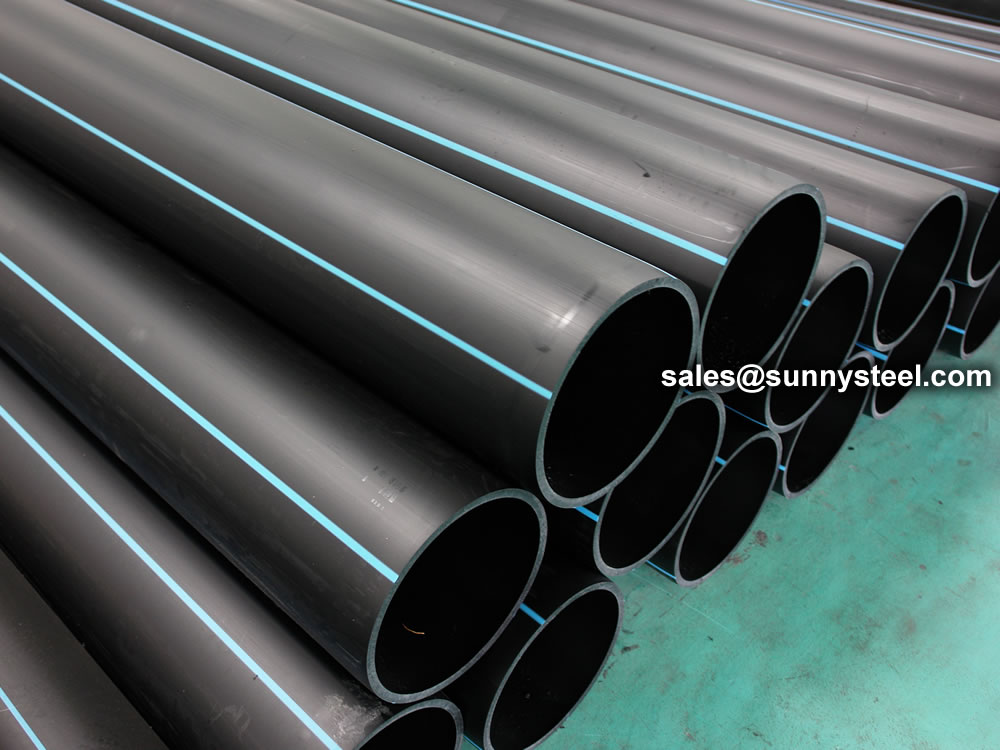American Plastics HDPE Pipe for Oilfield: Trusted by Engineers
Wiki Article
Understanding the Key Perks of HDPE Pipeline for Water and Wastewater Management
Using HDPE pipe in water and wastewater management presents numerous advantages that warrant consideration. Its remarkable longevity and long life-span make it a recommended selection for many jobs. Additionally, the product's resistance to deterioration and chemical damage enhances its reliability in various atmospheres. Nonetheless, the advantages expand past simply durability and resistance. Exploring its cost-effectiveness and ecological influence reveals a lot more engaging reasons for its widespread fostering in contemporary frameworkRemarkable Sturdiness and Durability

HDPE pipe sticks out for its outstanding toughness and durability, making it a preferred option in water monitoring systems. Built from high-density polyethylene, these pipelines can stand up to considerable pressure and tension, making sure trustworthy performance with time. Their robust nature permits them to sustain extreme environmental conditions, including temperature level changes and dirt movements, which can create various other products to stop working.
The lifespan of HDPE pipelines frequently goes beyond half a century, supplying a cost-effective solution for towns and sectors alike. In addition, the material's light-weight buildings simplify setup, lowering labor prices and timeframes. This durability decreases the demand for frequent repair work or substitutes, even more enhancing its economic charm.
In water management applications, the integrity of HDPE pipelines indicates less disturbances and improved solution connection, making them integral to sustainable infrastructure advancement. The combination of toughness and long life strengthens HDPE's function as a foundation in efficient water monitoring remedies.

Resistance to Rust and Chemical Damage
While many materials surrender to rust and chemical damage over time, HDPE pipes display exceptional resistance, making them optimal for various water monitoring applications. This strength stems from the molecular structure of high-density polyethylene, which is inherently non-reactive and does not wear away like steels or deteriorate from direct exposure to extreme chemicals. Therefore, HDPE is highly efficient in atmospheres with hostile substances, such as wastewater systems that might contain acids, bases, and organic solvents.
Furthermore, HDPE pipelines can endure environmental factors such as soil level of acidity and saline conditions, even more improving their viability for varied applications (custom hdpe pipe manufacturing Midland TX). Their ability to maintain structural stability in time lowers the danger of leaks and failures, which is essential in making certain the security and dependability of water circulation and wastewater administration systems. Subsequently, the resistance to corrosion and chemical damages significantly contributes to the general efficiency and durability of HDPE piping services
Cost-Effectiveness and Economic Advantages
When thinking about the economic implications of water administration systems, the cost-effectiveness of HDPE pipelines ends up being noticeable. These pipes provide lower installment and maintenance costs contrasted to standard materials like metal or concrete. Their light-weight nature streamlines transport and setup, resulting in reduced labor expenses. Furthermore, HDPE pipelines show a lengthy life-span, usually exceeding half a century, which translates to hdpe pipe fittings Midland TX less replacements and lasting cost savings.Furthermore, the resistance of HDPE to corrosion and chemical damage minimizes the demand for costly fixings and replacements. The pipelines likewise sustain efficient water flow, reducing power expenses connected with pumping systems. By minimizing leaks and water loss, HDPE pipelines add to substantial economic advantages for municipalities and industries alike. Generally, the first investment in HDPE piping can produce substantial monetary returns over the life expectancy of the water monitoring system, making it a prudent selection for sustainable framework growth.
Environmental Sustainability and Decreased Effect

Convenience and Flexibility in Installation
Due to their one-of-a-kind homes, HDPE pipes offer remarkable versatility and adaptability in installation, making them ideal for a wide variety of applications. Their lightweight nature enables less complicated handling and transportation, decreasing labor costs and installment time. HDPE pipes can be bent and formed to fit various surfaces and job demands, which is especially useful in challenging settings.Furthermore, their resistance to corrosion and chemical damages enables installment in diverse settings without the need for specialized protective coatings. The capacity to fuse joints creates a continual, leak-free system, improving the total stability and integrity of the setup. HDPE's adaptability likewise suits ground activity, minimizing the risk of damage in locations prone to changing soil. Generally, these characteristics make HDPE pipelines not just versatile yet likewise a preferred option for water and wastewater monitoring systems.
Frequently Asked Concerns
How Does HDPE Pipe Contrast to PVC in Water Management Applications?
HDPE pipe uses superior versatility, resistance to deterioration, and sturdiness compared to PVC. Its lighter weight assists in easier setup, while its lengthy lifespan lowers substitute prices, making HDPE a favored choice in water administration applications.What Is the Life Expectancy of HDPE Pipes Under Normal Problems?
Under common conditions, HDPE pipes can have a lifespan ranging from 50 to 100 years. Their resilience and resistance to rust contribute to their long-term performance in various applications, making them a reliable choice for infrastructure.Are HDPE Water Lines Recyclable After Their Life Span?
Yes, HDPE pipelines are recyclable after their life span. Pipe Supplier American Plastics Midland. They can be refined and repurposed right into new products, considerably minimizing ecological effect and promoting sustainability within the industry, making them an environment-friendly option for piping optionsWhat Is the Setup Process for HDPE Pipeline?
The installation process for HDPE pipes involves website preparation, trenching, pipe fusion or mechanical signing up with, backfilling, and stress testing. Proper strategies ensure a long lasting and effective system for transporting water and wastewater effectively.Can HDPE Piping Be Made Use Of for Both Drinkable and Non-Potable Water Systems?
Yes, HDPE pipelines can be utilized for both potable and non-potable water supply. Their convenience, toughness, and resistance to rust make them suitable for numerous applications, guaranteeing risk-free and effective transportation of water in different contexts.Report this wiki page